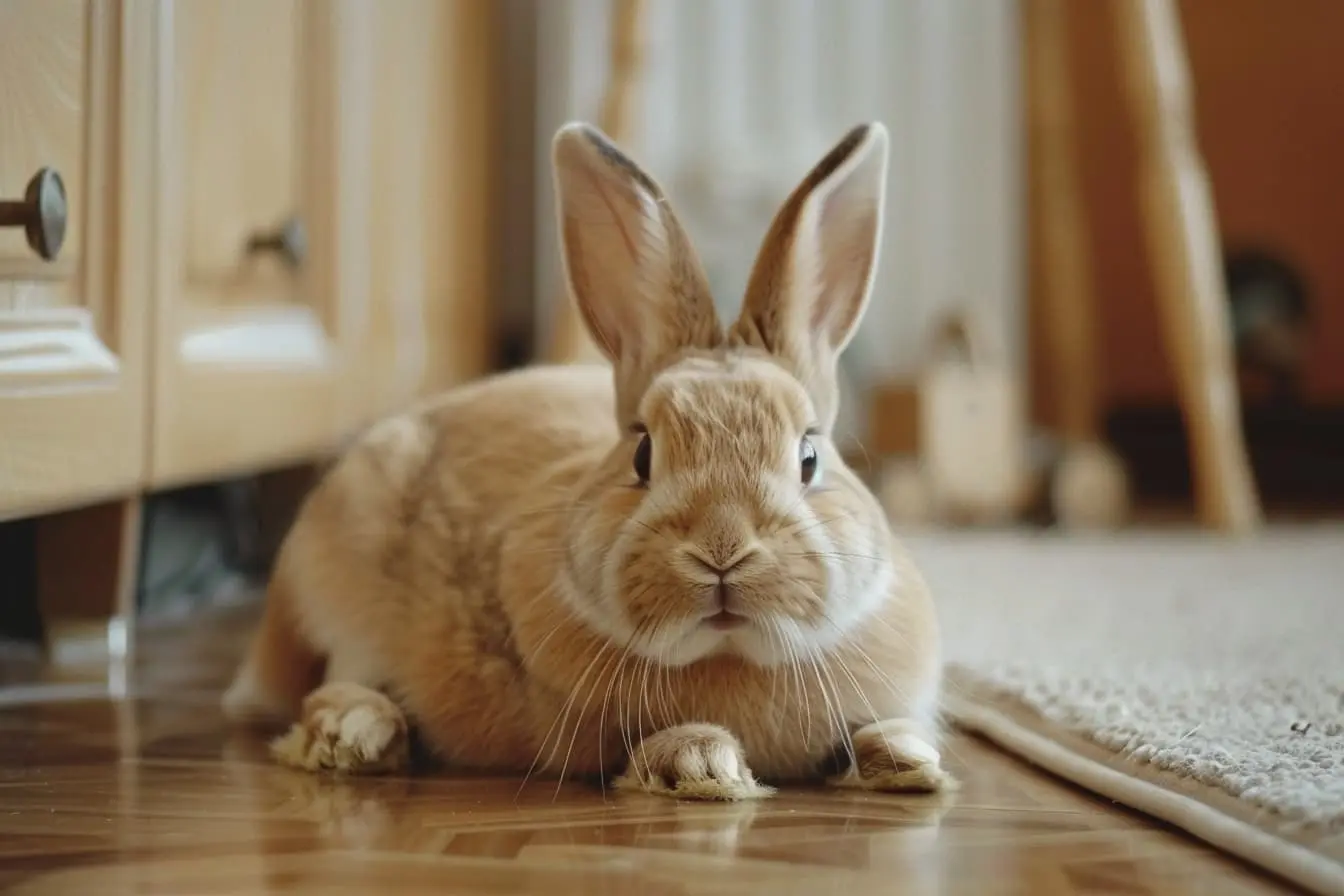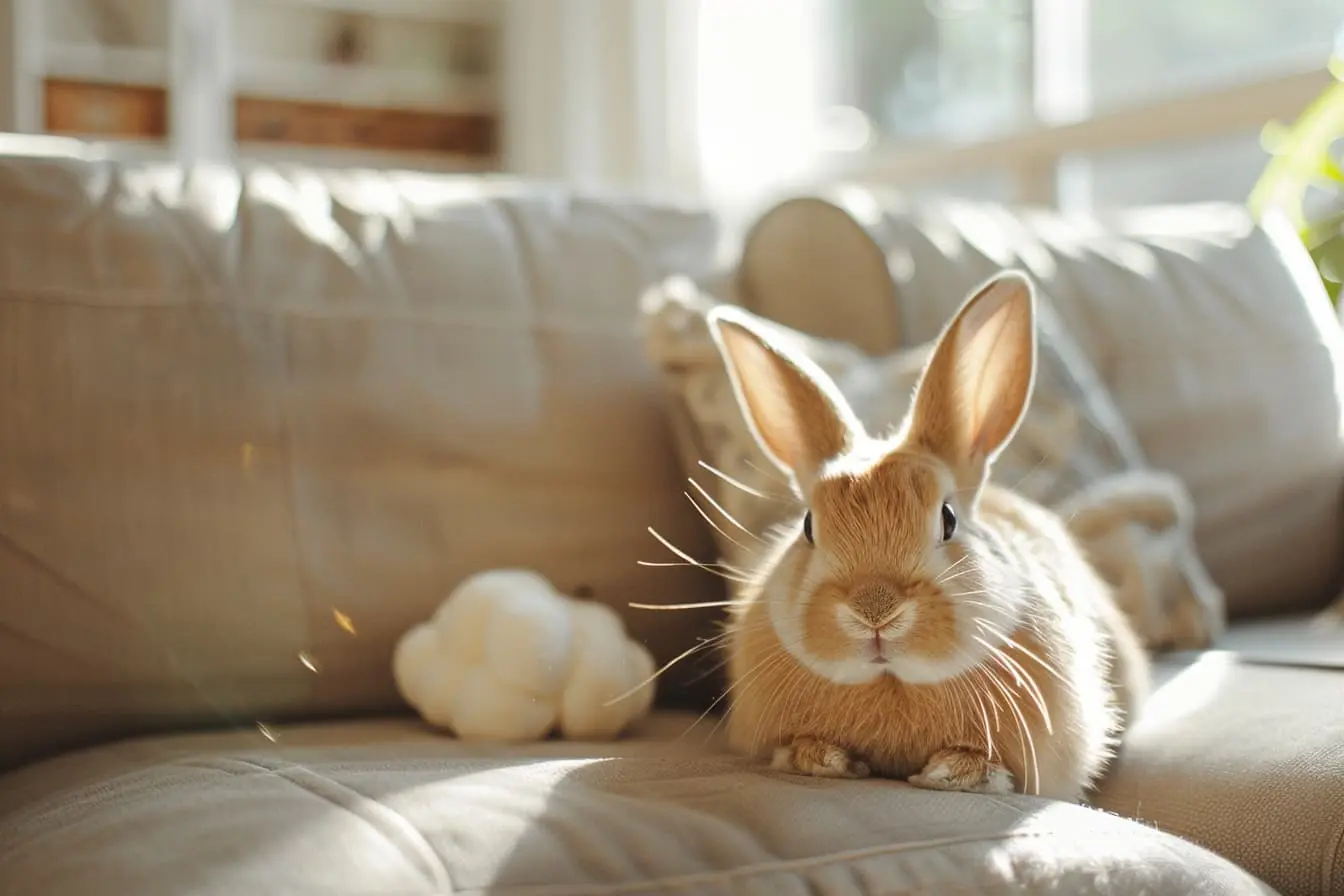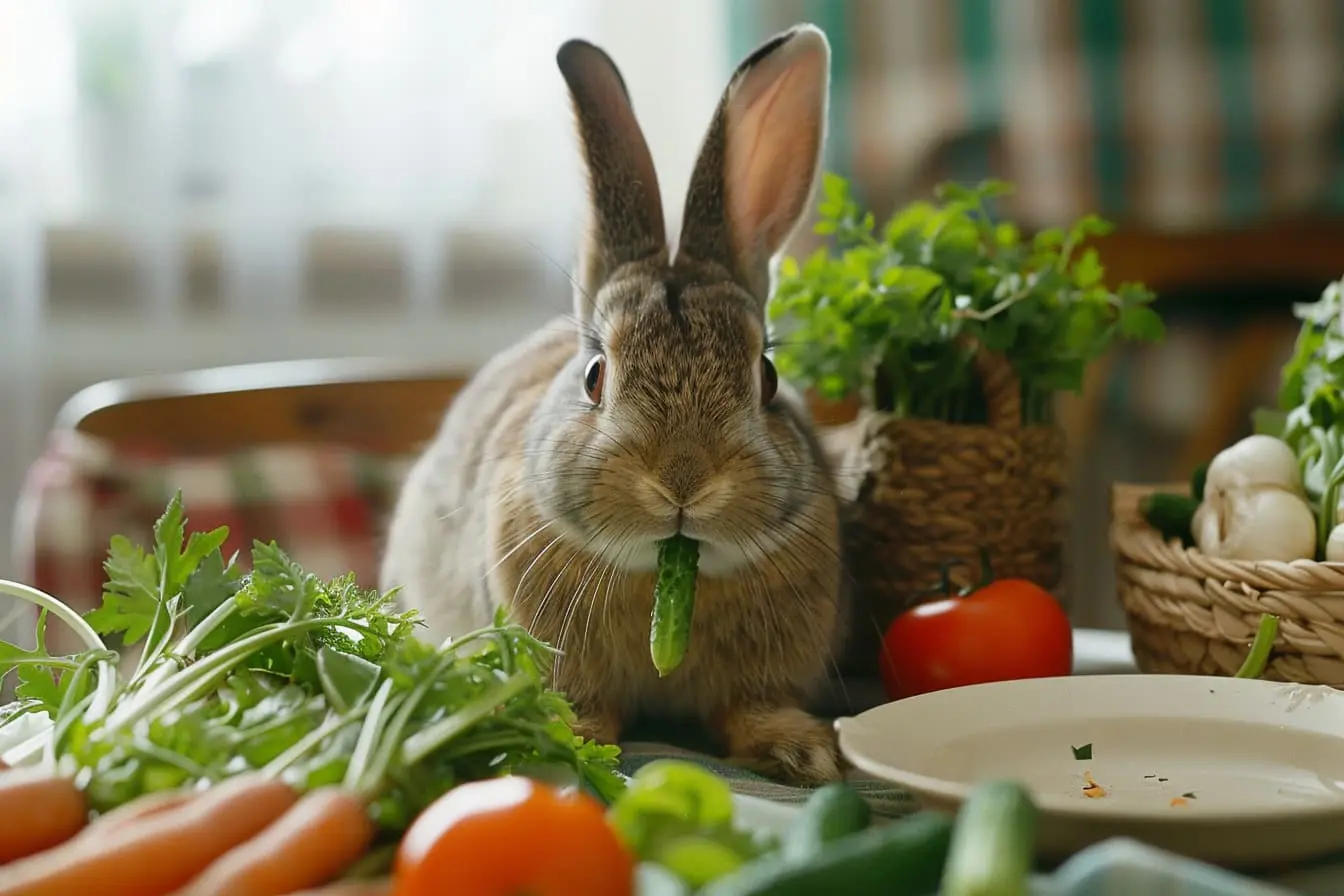
The Top 25 Rabbit Care Questions Answered by UK Vets
Owning a rabbit comes with its unique set of joys and responsibilities. To help ensure your furry friend enjoys a happy and healthy life, we've compiled and answered the top 25 most common questions UK vets are asked about rabbits. Whether you're a new rabbit owner or looking to brush up on your knowledge, this guide covers essential aspects of rabbit care, from diet to health concerns.
Diet and Nutrition
1. What should I feed my rabbit? Hay should be the main component of your rabbit's diet, supplemented with a small amount of fortified pellets and fresh vegetables daily. Fresh, clean water should always be available.
2. Can rabbits eat fruits? Yes, but only in moderation due to their high sugar content. Opt for fruits like apples and berries as occasional treats.
3. How much food does my rabbit need each day? The amount depends on the rabbit's size and breed. Generally, offer unlimited hay, a handful of fresh veggies, and 1/8 to 1/4 cup of pellets per day for a medium-sized rabbit.
Health Care
4. How often should my rabbit see a vet? Rabbits need an annual check-up. However, they should see a vet immediately if you notice any signs of illness.
5. Do rabbits need vaccinations? Yes, against Myxomatosis and Rabbit Haemorrhagic Disease (RHD). Your vet can advise on the schedule.
6. How can I tell if my rabbit is sick? Watch for changes in behaviour, appetite, or bathroom habits. Lethargy, sneezing, or a dirty bottom can also indicate illness.
Housing and Environment
7. Can rabbits live indoors? Absolutely. Indoor rabbits need a spacious pen and daily exercise time in a rabbit-proofed area.
8. What kind of bedding is best for rabbits? Paper-based or hardwood bedding is safest. Avoid cedar or pine shavings due to respiratory risks.
9. How often should I clean my rabbit's cage? Spot-clean daily and perform a thorough clean at least once a week.
Behaviour and Socialization
10. Why does my rabbit chew everything? Chewing is a natural behaviour for teeth maintenance and exploration. Provide plenty of chew-safe toys and items.
11. Do rabbits need companions? Rabbits are social and thrive in the company of another rabbit, but introductions should be done carefully.
12. How can I bond with my rabbit? Spend time daily on the floor at their level, offering treats and gentle pets as they become comfortable with you.
Grooming and Handling
13. How often should I groom my rabbit? Brush your rabbit weekly, more often if they have long fur. Clipping nails and checking teeth should be done monthly.
14. Is it okay to bathe my rabbit? No, rabbits should not be bathed. Spot clean with a damp cloth if necessary, as full baths can cause stress and health issues.
Nutritional Health Issues
15. What are common dietary problems in rabbits? Obesity, GI stasis, and dental issues can arise from improper diets. Ensure a balanced diet and regular vet check-ups.
Breeding
16. Should I spay or neuter my rabbit? Yes, to prevent unwanted litters, reduce aggression, and lower the risk of certain cancers.
General Care
17. How long do rabbits live? With proper care, rabbits can live 8-12 years, depending on the breed.
18. Can rabbits be litter trained? Yes, most rabbits can learn to use a litter tray with patience and consistent training. It helps if they are neutered.
19. What are the signs of stress in rabbits? Pacing, aggression, over-grooming, or hiding can indicate stress. Ensure a calm environment and regular routines.
20. How can I keep my rabbit cool in the summer? Provide shade, frozen water bottles, and ensure their living area is well-ventilated.
21. Can I take my rabbit for a walk? Yes, with a proper harness and close supervision in a safe, enclosed area.
22. What should I do if my rabbit stops eating? This is an emergency. Seek vet care immediately as it could indicate a serious health issue.
23. How can I prevent my rabbit from getting fleas? Regular grooming, clean living conditions, and vet-recommended flea treatments can help.
24. Can rabbits recognise their owners? Yes, rabbits can become very attached to their owners, recognising them by voice and appearance.
25. Is it normal for rabbits to eat their droppings? Yes, it's a normal and necessary process called cecotrophy, allowing them to digest nutrients fully.
By understanding and addressing these common questions, you can provide your rabbit with a loving and nurturing environment, ensuring they remain a happy and healthy companion.
Vets near you
Speciality vets
- Aquatics vet specialists
- Birds vet specialists
- Camelids vet specialists
- Cats vet specialists
- Cattle vet specialists
- Deer vet specialists
- Dogs vet specialists
- Equines vet specialists
- Exotic vet specialists
- Goats vet specialists
- Pigs vet specialists
- Poultry vet specialists
- Sheep vet specialists
- Small Mammals vet specialists
- Wild vet specialists
Vet facilities
- Accessible by public transport
- Blood testing
- Car park nearby
- Client car park
- Dentistry
- Diagnostic imaging
- Disabled public access
- Flea and worm treatments
- Microchipping
- Mobile services
- Neutering
- Open at weekends
- Out-of-hours service
- Referral interests
- Referrals only
- Street parking outside
- Toilets available
- Vaccinations



